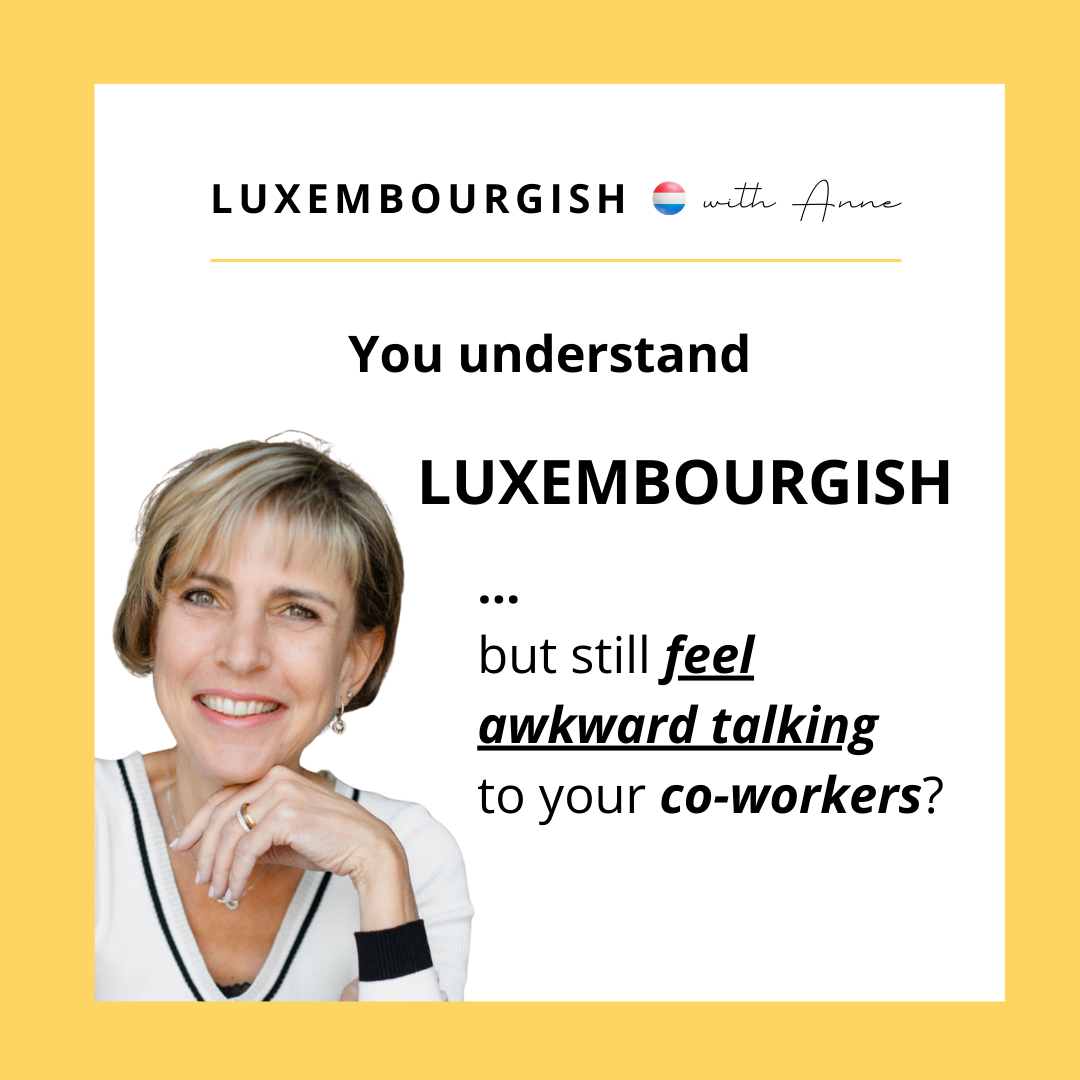In this lesson you will learn lots of vocabulary to describe a person, i.e., his physical appearance, the impression you got from that person, what clothes the person is wearing and the colors of the clothes. The focus will be on the description of a person you saw on a picture, for example on a social network or a person you briefly met somewhere and you would like to describe that person to another person.
In the previous lesson you’ve learnt how to say the colors but most important how to pronounce the colors in Luxembourgish.
This lesson will be very useful for all those of you who intend to sit the Luxembourgish Language Test called Sproochentest so to acquire the Luxembourgish citizenship. You will be asked to describe someone on a picture: physical appearance & clothes. So, to prepare for it, it’s essential to know some vocabulary words used to describe people and to practice using them.
Appearance
Let’s start with the physical appearance of a person, more precisely with the “hair” which is Hoer.
Watch the video for the correct pronunciation.
- Hatt huet blond Hoer (plural). – She has blond hair.
- Hatt huet laang blond Hoer. – She has long blond hair.
Adjectives to describe the hair:
laang (long) – kuerz (short) – mëttel-laang (medium length) – gekrauselt (curly) – glat (straight) – blond – gefierft (coloured)
A man can have e Schnauz (a moustache) or e Baart (a beard) or eng Glatz (a bald head)
A woman can have e Päerdsschwanz / e Wutz (a ponytail) or en Tuppi / Chignon (a chignon)
A person can physically be
grouss (tall) – kleng (small) – schlank (slim) – korpulent – flott (pretty) – schéin (beautiful) – sportlech (sporty) – jonk (young) – al (old)
For elderly people use the word eeler: eeler Leit / eng eeler Fra / en eeleren Här
Often a person lets a first impression on you. So …
A person might be
frou (happy), sympathesch (likeable), onsympathesch (unlikeable), nervös (nervous), seriö (serious), schei (shy), frëndlech (friendly) etc ….
Clothes
Use either the verb unhunn (verb with a separable prefix) or the verb droen. They both mean to wear. But note that lots of native speakers use unhunn.
Hien huet a bloen T’Shirt un. – He’s wearing a blue T’Shirt.
Wait a minute, you’ve learnt in the previous lesson that the word for blue is blo, right? And why is it then e bloen T’Shirt?
Well, that’s where grammar comes in. T’Shirt is a masculine noun then you have to add the ending –en to your color!
Check out the lesson where I talked about the adjective endings.
- Si huet e faarwege Schal (masc) un. – She (formal) is wearing a colorful scarf.
- Hien huet e wäisst Hiem un. – He is wearing a white shirt.
Hiem is a neuter noun therefore you have to add the ending – t to the adjective wäiss.
- Ech droen oft eng blo Box (fem). – I often wear blue pants.
- Ech hunn haut rout Schong (plural) un. – I’m wearing red shoes today.
Accessories:
- Si huet Ouerréng an eng Ketten un. – She is also wearing ear rings and a neckless.
- Si huet eng brong Posch aus Lieder. – She has a brown leather bag.
- Hien huet och eng Auer un. – He is also wearing a watch.
Use the verb ophunn when a person is wearing something on his head or glasses.
- De Mann huet en Hutt op. – The man is wearing a hat.
- Hien huet eng Kap op. – He is wearing a cap.
- D’Fra huet e Brëll / e Sonnebrëll (masc) op. – The woman is wearing glasses / sunglasses.
Learn the effective strategy to describe a picture with persons with my online course Master the Sproochentest – Oral Exam.
The next lesson you will learn how to talk about family in a casual conversation. This will be again a conversation workout.
Exercise / Übung:
Translate the following sentences into Luxembourgish:
- My wife often wears a white T’Shirt.
- My sister is wearing a dark red dress.
- I don’t like to wear colorful clothes.
Download the PDF so to practice what you’ve learnt in this lesson with many more sentences to translate!
I hope you liked it and found it useful. And …. why not sharing this lesson with your friends:-)
If you want to learn Luxembourgish from scratch but you don’t have time to attend classes then this my online course is for you!




